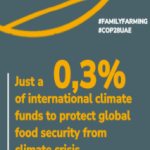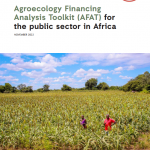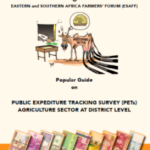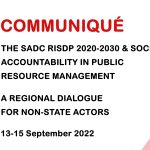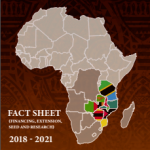A Zambian small scale woman farmer makes a case for Agroecology in Bonn
Mary Sakala, smallholder farmer leader from ESAFF-Zambia was formally invited by the United Nations to give a formal presentation at UNFCCC climate negotiations in Bonn, Germany on 19th June 2019. She was nominated as a speaker by ActionAid International, and a wide range of NGOs representing the environment, farmers, gender constituency and indigenous peoples supported her nomination.
Mary presented at a workshop on Agriculture discussing the various dimensions of Soils. In the main Chamber Hall, standing at the central podium, her presentation highlighted the challenges that women smallholder farmers in Zambia face as a result of climate change, in particular the additional burden of care that women farmers face when rainfall is scarce. She highlighted how synthetic fertilizers harm soils, reducing their water retention and fertility, resulting in less resilience and lower yields. In spite of this, the Zambian government continues to spend 70% of its agriculture budget on subsidizing synthetic fertilizers, even though the national budget is tight, and other crucial services are desperately under-funded.
Mary told a clear and powerful story of how Agro-ecological approaches to farming help women smallholder farmers to adapt to climate change, by improving the soil health, water retention and yields. She told of how her crops survived better during the recent El Nino event, as they tolerated the long dry spell better than farms treated with synthetic fertilisers.
She asked government representatives from around the world to involve farmers in research as they develop their policies, to promote agro-ecology and train farmers so that agriculture becomes more resilient, and to stop subsidizing synthetic fertilizers.
After huge applause and appreciation, the Agriculture co-chairs, the UN secretariat, and many governments expressed their particular thanks to Mary for coming all the way from Zambia to powerfully present the women smallholder farmer perspective. They continued to refer to Mary’s presentation during the subsequent workshop and in the days and negotiation sessions that followed. Many noted that Mary’s presence helped the discussions to connect to the real issues on the ground, and strengthened the relevance and effectiveness of the workshop.
Several government representatives responded in particular to the issue that Mary raised, on subsidies for fertilizers, making this the first time that the issue has been discussed in climate negotiations on agriculture! The representative of New Zealand supported her proposal, and this triggered some discussion between countries on the relative merits of fertilizers and different kinds of subsidies. This is an excellent precedent, as it means the issue will hopefully be noted in the report of the workshop. NGOs hope to use this opportunity to make this the basis of future policy advocacy.
In addition to the presentation at the workshop, Mary also presented at a side event on Agro-ecology along with the Institute for Agriculture and Trade Policy (IATP) and the Research Institute of Organic Agriculture (FiBL). She was interviewed for a UNFCCC film about climate change and agriculture. She met and connected with numerous civil society representatives from around the world working on agriculture, gender and climate, joining some NGO strategy meetings. She also met many representatives from the UN, FAO and governments around the world, including the Zambian negotiator on agriculture.
In conclusion, Mary’s articulate presentation in Bonn was heard and deeply appreciated by governments working on agriculture and climate change around the world. She spoke truth to power, and in a way that they could not fail to respect and acknowledge. We hope that her attendance will leave a legacy as governments at the UN agree collective ways forward for Agriculture to cope with Climate change.
Story by: Teresa Anderson, ActionAid International

















